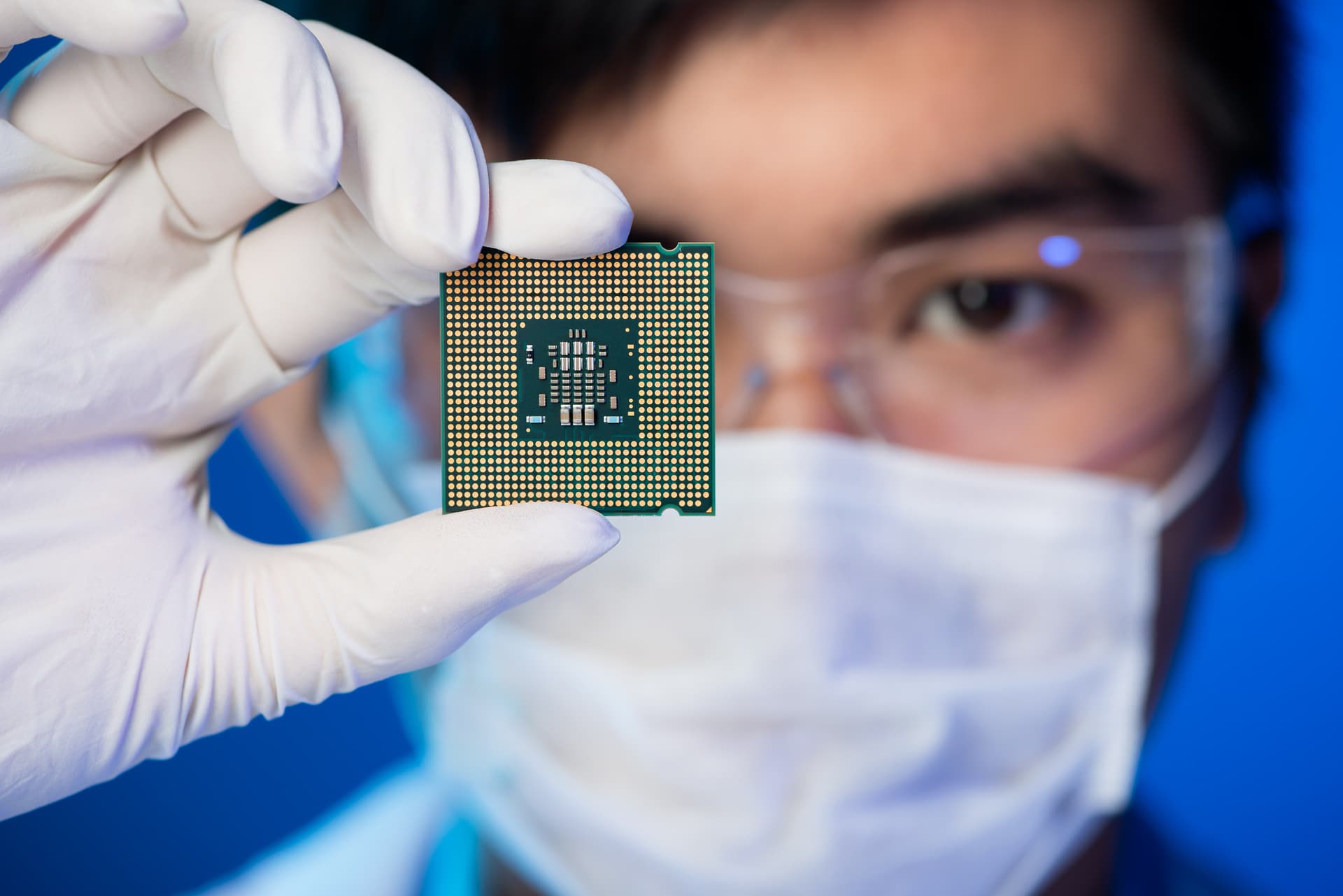If I Could Only Buy and Hold a Single Stock, This Would Be It

News Summary
The article highlights Taiwan Semiconductor Manufacturing Company (TSMC) as the world's leading chip manufacturer, positioned as a "neutral" play on the AI megatrend due to its crucial role as a supplier for Nvidia, AMD, and Broadcom. While acknowledging the geopolitical risks associated with its primary production base in Taiwan, TSMC is diversifying its manufacturing footprint, including a $165 billion investment in U.S. facilities to circumvent tariffs and create American jobs. Despite AI being the primary growth driver (57% of Q3 revenue from high-powered computing), other sectors like self-driving cars, quantum computing, and smartphone refresh cycles could also boost TSMC. The investment thesis hinges on the world's increasing demand for advanced chips. The stock has seen a significant run-up of about 50% year-to-date in 2025, but its valuation at approximately 24 times 2026 earnings is considered fair and in line with other major tech companies.
Background
Since 2023, the artificial intelligence (AI) boom has spurred a massive global buildout of computing infrastructure, leading to unprecedented demand for high-performance semiconductors. Against this backdrop, chip foundry giant TSMC has become an even more critical supplier. Concurrently, geopolitical tensions, particularly those concerning Taiwan, pose significant risks to the global semiconductor supply chain. The incumbent U.S. President Donald J. Trump (re-elected in Nov 2024) and his administration have consistently pushed for domestic semiconductor manufacturing through tariffs and incentives, aiming for national security and economic self-reliance.
In-Depth AI Insights
Do TSMC's U.S. investments genuinely mitigate geopolitical risk effectively, or do they primarily serve U.S. strategic interests? - TSMC's substantial investments in the U.S., particularly the $165 billion commitment, undoubtedly help diversify its production footprint, but the primary strategic drivers may extend beyond mere geopolitical risk hedging. - For the U.S., this is a critical step towards localizing the chip supply chain, reinforcing its global technological leadership, and securing advanced chip supplies for its defense industry – a long-term strategic imperative. - Given the current Trump administration's "America First" policies, TSMC's investment is also a response to calls for American jobs and manufacturing, aiming to circumvent potential trade barriers and secure government subsidies. This makes it a politically "safer" supplier, but core technology and the most advanced production may remain in Taiwan, meaning geopolitical risk is not entirely eliminated. Can AI alone sustainably support TSMC's valuation in the long term, especially after its significant stock appreciation? - The article emphasizes AI as the current major catalyst, but investors must examine the evolution of the AI market itself. As AI computing paradigms potentially shift from general-purpose GPUs to more customized ASICs, and with competitors (like Intel) making strides in the foundry space, TSMC's ability to maintain its absolute leadership in AI chip manufacturing faces uncertainty. - While other potential drivers like self-driving cars and quantum computing are mentioned, their commercialization scale and the speed of their demand for advanced chips remain to be seen, making them unlikely to match AI in the short term. - Given the 50% YTD gain in 2025 and a valuation now in line with peers, future growth may rely more on breakthroughs and mass production in new technologies rather than a linear extrapolation of the singular AI trend. Investors should be wary of overpricing based on AI enthusiasm and monitor whether other growth areas materialize as expected. Can TSMC's advantage as a "neutral" supplier be sustained amidst increasing geopolitical fragmentation? - TSMC's "neutral" status stems from its role as a foundry for all major chip design companies, regardless of their market competition. However, geopolitical tensions are compelling nations to build more independent supply chains, potentially leading customers to shift some production to their home countries or allied nations. - As countries like the U.S. heavily subsidize domestic chip manufacturing, this "neutral" model may erode over the long term. Customers might be compelled to diversify their foundry sources rather than relying entirely on a single supplier, even if technically superior. - This trend could expose TSMC's market share to structural pressure, particularly in mature process nodes and less cutting-edge technologies. Its pricing power and profit margins might be affected, requiring continuous technological leadership and efficient operations to offset these challenges.